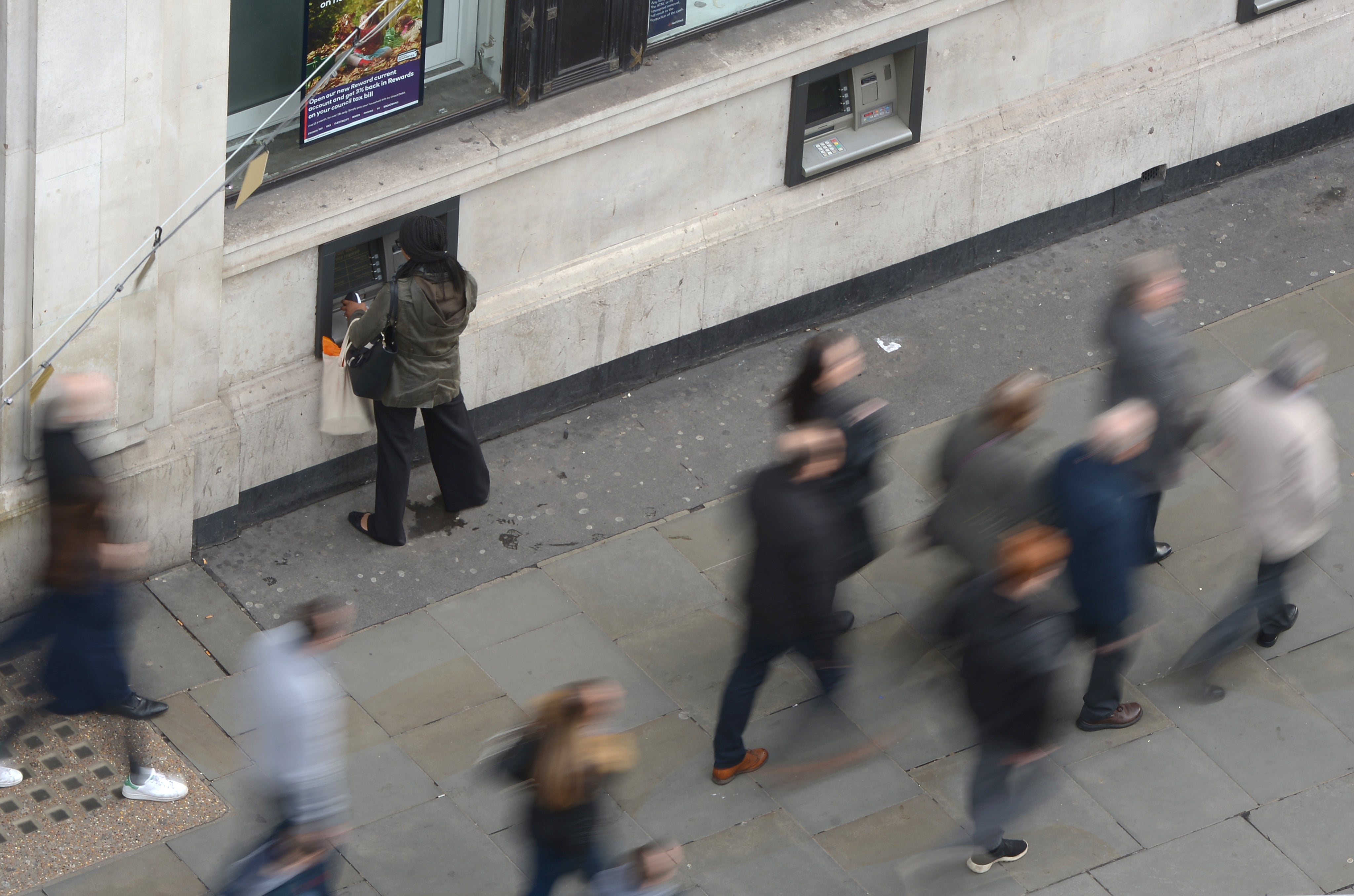One in five ‘would struggle to cope in a cashless society’
Nearly half of people believe going cashless would be problematic for them, according to a report.

Your support helps us to tell the story
From reproductive rights to climate change to Big Tech, The Independent is on the ground when the story is developing. Whether it's investigating the financials of Elon Musk's pro-Trump PAC or producing our latest documentary, 'The A Word', which shines a light on the American women fighting for reproductive rights, we know how important it is to parse out the facts from the messaging.
At such a critical moment in US history, we need reporters on the ground. Your donation allows us to keep sending journalists to speak to both sides of the story.
The Independent is trusted by Americans across the entire political spectrum. And unlike many other quality news outlets, we choose not to lock Americans out of our reporting and analysis with paywalls. We believe quality journalism should be available to everyone, paid for by those who can afford it.
Your support makes all the difference.Nearly one in five (19%) people say they would struggle to cope in a cashless society, according to a report.
Almost half (48%) believe going cashless would be problematic for them and three in 10 (29%) think while they would cope, it would be a major inconvenience.
The figures were published by research and ideas organisation the RSA and funded by cash machine network Link.
The shift towards digital alternatives to cash accelerated during the pandemic, with some shops refusing notes and coins and people shopping online more.
There was also an initial significant fall in cash machine withdrawals.
Cash helps some on low incomes to budget and is also important to the elderly, who are more likely to visit bank branches and post offices in person, researchers said.
It's vital that the dash to digital doesn't disenfranchise anyone, especially with the cost-of-living crisis putting such significant strain on family finances right now
The areas with the smallest dips in cash machine withdrawals during the pandemic tended to be the most deprived.
Cash users in rural and remote locations are concerned that poor broadband and mobile connectivity will make it harder for them to go fully digital, the report added.
The Government said it will legislate to protect the future of cash.
The report said there is an urgent need to introduce legislation, overseen by the Financial Conduct Authority, to ensure everyone can continue to access cash near to where they work and live and to protect the commercial cash system.
It said essential Government services such as school dinners, council tax and utilities should ensure people wishing to pay by cash can do so.
And no region should be left behind as broadband speeds increase, it said.
Report author Mark Hall from the RSA said: “It’s vital that the dash to digital doesn’t disenfranchise anyone, especially with the cost-of-living crisis putting such significant strain on family finances right now.”
John Howells, chief executive at Link, said: “People are increasingly using less cash and embracing contactless and digital payments.
“However, it’s clear that digital does not currently work for everyone and for those living on tight budgets, where every penny counts, there is no better alternative to notes and coins, and they are in no rush to turn to money management tools.
“We are pleased to see that the Government has committed to introduce legislation to protect access to cash, but it’s vital we have this now.”
The question we asked three years ago was whether the UK is ready to go cashless. The answer is still no
Natalie Ceeney, independent chairwoman of the Access to Cash Review, said: “It’s three years since we published the final recommendations of the Access to Cash Review and despite the pandemic, the need for cash has not gone away.”
She added: “The question we asked three years ago was whether the UK is ready to go cashless. The answer is still no.”
The research included a survey of more than 3,000 people as well as focus groups and interviews.